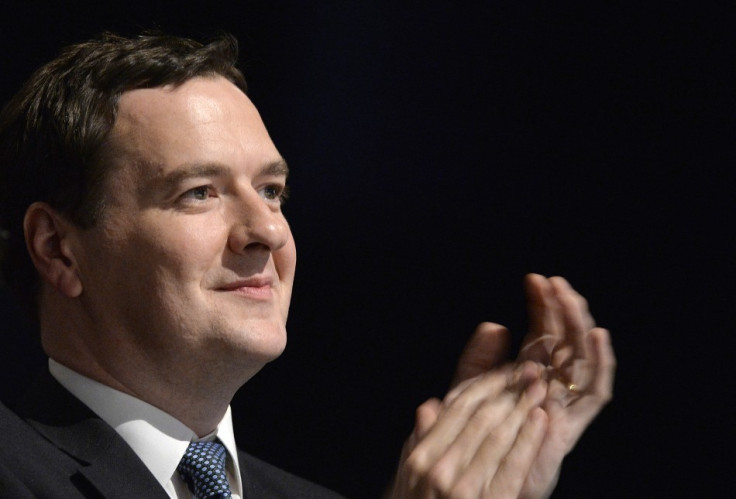UK Q3 Growth at 0.8% as George Osborne Declares Britain on 'Path to Prosperity'

Britain's economic growth accelerated further in the third quarter as the embryonic recovery continues to develop.
The Office for National Statistics (ONS) said UK GDP grew by 0.8% in the three months to the end of September, up from 0.7% in the second quarter. This is the preliminary estimate for Q3 and is based on around 40% of the available data.
"This shows that Britain's hard work is paying off and the country is on the path to prosperity," said Chancellor George Osborne of the strongest quarterly growth reading since the second quarter of 2010.
Output increased in all four main industrial groupings within the economy in Q3. Agriculture lifted 1.4%; production grew 0.5%; construction was up 2.5%; and services output, which accounts for more than three quarters of GDP, rose 0.7%.
"Output from services is now slightly above its previous peak in Q1 2008, prior to the economic downturn," said the ONS.
"In Q3 2013 GDP was estimated to be 2.5% below the peak in Q1 2008. From peak to trough in 2009, the economy shrank by 7.2%."
Private industry data from the services, manufacturing and construction sectors, compiled by research firm Markit, all showed a solid uptick in output growth across the third quarter.
As a result of the improving picture, a number of leading economic forecasters - including the IMF, OECD and Bank of England - upgraded their growth outlooks for the UK.
However, others have warned on how the apparent recovery is manifesting. An HSBC report told Chancellor George Osborne he should focus on the quality of the recovery, not just the improving headline output numbers.
The global bank cautioned that the UK is still heavily reliant on debt-driven consumption and needs to work harder on increasing exports to reduce the current account deficit.
"Following the pre-crisis credit boom, the UK needs less consumption and more saving and investment," said Simon Wells, HSBC's chief UK economist, in his research note.
"It needs to import less and export more and, as part of this, probably shift away from services and towards manufacturing.
"This is well known but since 2007, activity has become more unbalanced. And with policies to boost the housing market alongside the BoE's intention to keep interest rates low for several more years, the UK risks a return to bad habits.
"Deferring an inevitable adjustment down the road may make it more painful when it finally occurs."
Wells added: "The recovery is welcome but the UK needs to look beyond just the quantity of growth and start focusing on the quality."
Part of the UK's upturn is down to credit easing measures that have improved the flow of mortgage credit to consumers, such as Funding for Lending and Help to Buy, resulting in higher house prices. Some are warning of a new housing bubble, but others say there is much slack in the market.
"Much of the positive economic growth has come from the improved housing market and consumer spending," said John Allan, national chairman of the Federation of Small Businesses (FSB).
"The recent hike in the cost of energy combined with real wages rising below current inflation levels will mean that households have less to spend.
"While growth is above the level reported before the UK dipped into a second recession, these figures are still some way below the pre-recession peak and the chancellor must not be complacent."
He added: "The Autumn Statement should cement this positive mood by helping businesses invest and grow."
BoE Rates Hike
As the UK economy picks up faster than expected, markets fear the Bank of England will also tighten monetary policy before schedule.
Governor Mark Carney issued forward guidance that the record-low base rate, at 0.5% since 2009, will not be lifted until unemployment falls below a threshold rate of 7%. Even then, this does not mean the BoE will definitely raise rates, rather it will consider doing so.
According to the BoE's forecasts for unemployment, rates will not be raised until at least 2016. However, the burgeoning UK recovery has caused many to doubt the BoE's predictions and fear a rate hike sooner rather than later.
© Copyright IBTimes 2025. All rights reserved.






















